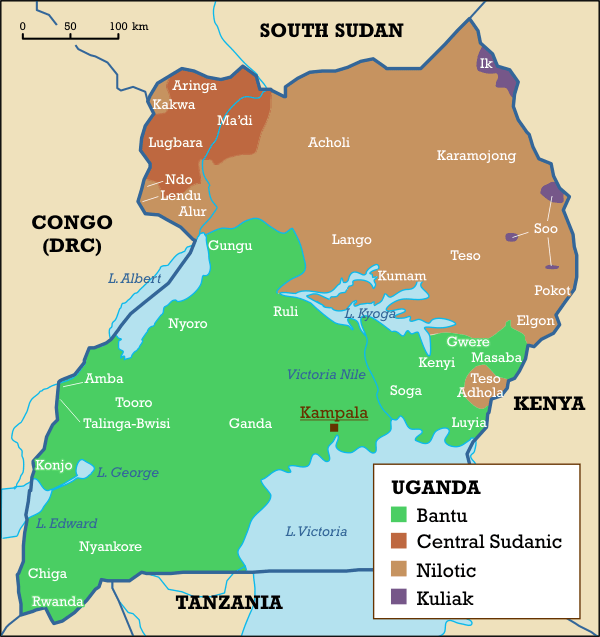Formaldehyde
Both Fair And Balanced
What I was suggesting is that the current Uganda government should fail, and that it might very well do so if it didn't ostensibly need the aid of 100 US toops to be able to finally control a renegade group of supposedly 500-9,000 members.I don't think propped up is the right term. It implies that the current Ugandan government would likely fall if it wasn't for US intervention which I haven't seen any evidence for. I will admit there is some moral ambiguity about helping them but it may end up saving the lives of Ugandans, assuming that the presence of 100 US troops will make a big difference, and I have no idea if that's the case.
After all, Uganda is a country of 32 million people. The so-called single-party "presidents" have been operating under what is essentially martial law since they deposed Idi Amin Dada in 1979. The Ugandan army consists or 40-45,000 soldiers and are well-known for their own abuses, including using 13-year-old children as soldiers.
The US also used to train them until 2000 when they invaded the Democratic Republic of the Congo after learning more advanced military tactics from us.
So once again, we are supposedly helping a brutal backward homophobic country to really continue to suppress their own people under the guise that they need help dealing with a tiny band of terrorists.
Uganda continues to experience difficulty in advancing respect for human rights in matters concerning torture, child labor, and liberties. There are as many as thirteen 'security' organizations of the Museveni government, some directly answerable to the President and not constitutionally based and established by Act of Parliament. These organisations persecute opponents of the government, carry out abductions, disappearances, extrajudicial killings and torture and act both independently, interdependently with each other, and in cooperation with the Ugandan Police.
These organisations also harass the free media and official parliamentary opposition.
Ugandan security agencies have been implicated in torture and illegal detention of suspects, including suspected LRA rebels and their sympathisers. Methods of torture include suspending suspects tied 'kandoya' (tying hands and feet behind the victim) from the ceiling, severe beating and kicking, and attaching electric wires to the male genitals.
On 14 June [2003] [Violent Crime Crack Unit Green] officers arrested Nsangi Murisidi, aged 29, on suspicion that he had facilitated friends to commit robbery and for alleged possession of a gun. Relatives tried in vain to visit him in detention. On 18 June the lawyer representing the family received confirmation of his death in custody while at the VCCU headquarters at Kireka, a suburb of Kampala. The death certificate established the cause of death as extensive loss of fluid and blood, severe bleeding in the brain and extensive deep burns on the buttocks. The body also bore 14 deep wounds. In October the Minister of Internal Affairs informed AI that an inquiry had been ordered, but no progress was subsequently reported. Source: Amnesty International Annual Report 2004.
Government agencies accused of torture include the UPDF's Chieftancy of Military
Intelligence (CMI), the Internal Security Organisation (ISO), the Violent Crime Crack Unit (VCCU) and ad hoc agencies such as the Joint Anti-Terrorist Task Force (JATF.) In October the Uganda Human Rights Commission (UHRC), which only receives complaints for a small fraction of actual human rights violations, found that torture continued to be a widespread practice amongst security organizations in Uganda.

